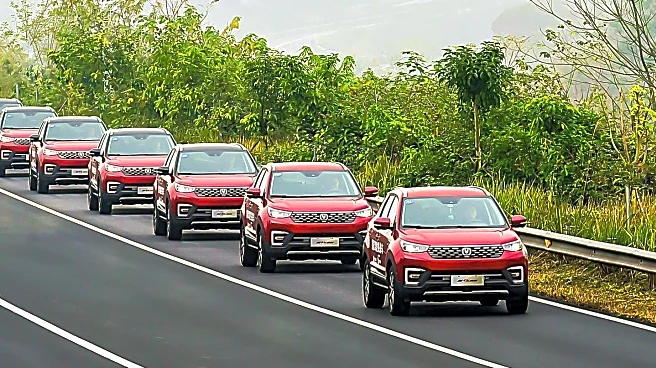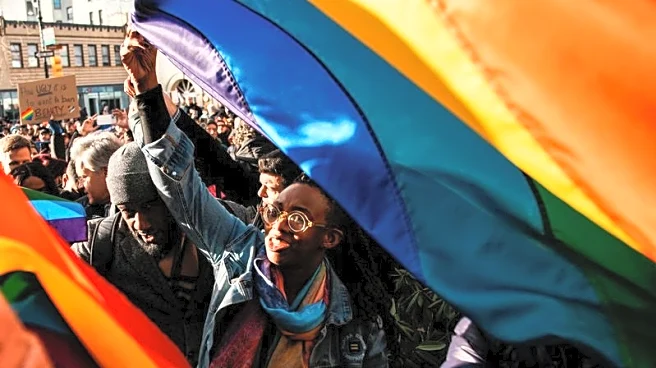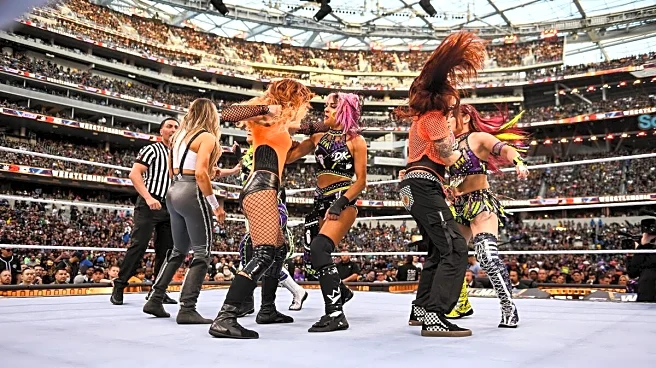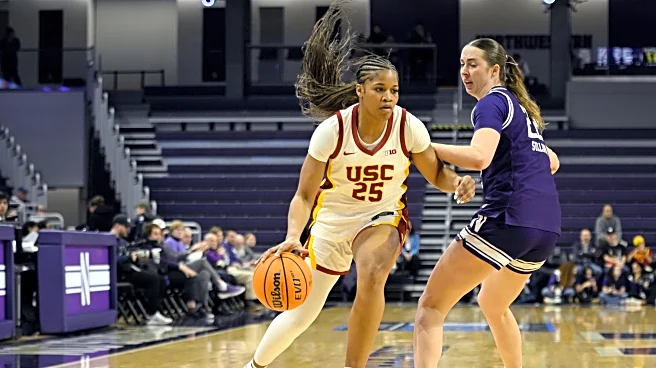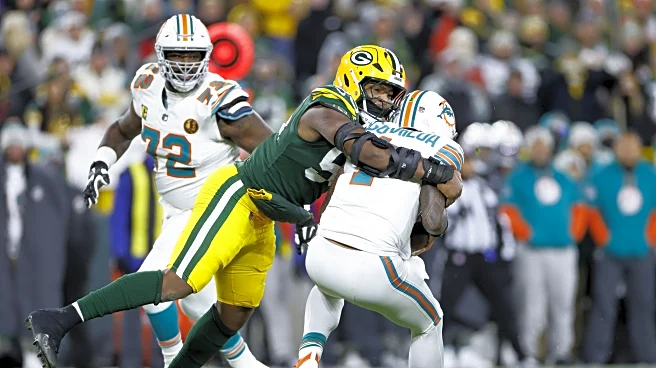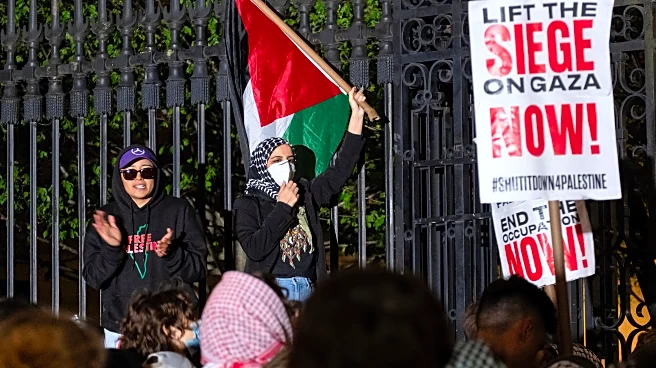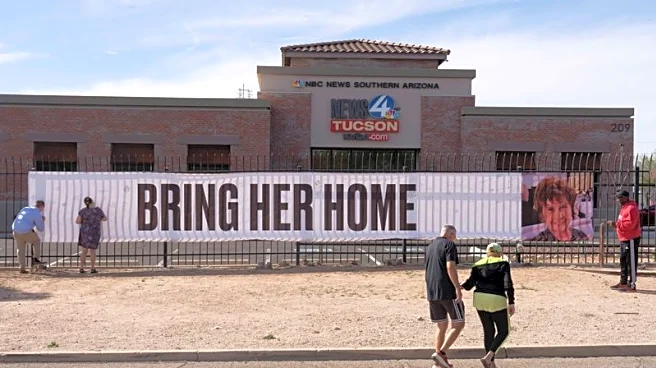What's Happening?
Funeral directors in Beverley, led by Lewis Northen, are calling for greater respect from drivers towards funeral processions. Northen has criticized drivers for cutting into funeral corteges, which typically
travel at 20mph to maintain cohesion between the hearse and limousines carrying the deceased's family. This disruption forces funeral directors to pull over to regroup, detracting from the dignity of the procession. Andrew Judd, chief executive of the National Association of Funeral Directors, echoed these concerns, highlighting the potential dangers posed by impatient drivers, including the risk of spooking horses and endangering funeral directors who walk in front of the hearse.
Why It's Important?
The call for respect towards funeral processions underscores a broader societal issue of declining patience and respect in public spaces. This behavior not only disrupts the solemnity of a funeral but also poses safety risks. The lack of consideration can lead to distress for grieving families and potential accidents. By raising awareness, funeral directors aim to foster a culture of respect and patience, which is crucial for maintaining public safety and honoring the deceased. This issue reflects on societal values and the importance of empathy in communal interactions.
What's Next?
Funeral directors may continue to advocate for public awareness campaigns to educate drivers on the importance of respecting funeral processions. There could be discussions on implementing stricter traffic regulations or penalties for drivers who disrupt these processions. Additionally, collaboration with local authorities to ensure smoother passage for funeral corteges might be considered. The response from the public and policymakers will be crucial in determining the effectiveness of these measures.
Beyond the Headlines
This situation highlights the ethical dimension of how society treats its most vulnerable moments. The respect shown to funeral processions can be seen as a reflection of societal values and the collective empathy of a community. It raises questions about the balance between individual convenience and communal respect, and how modern life can sometimes erode traditional courtesies.
